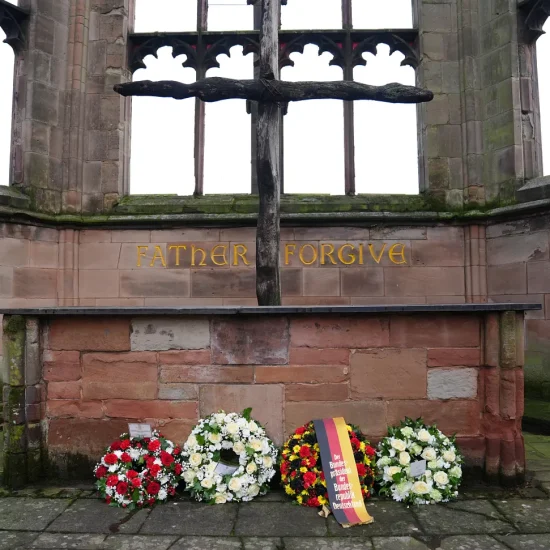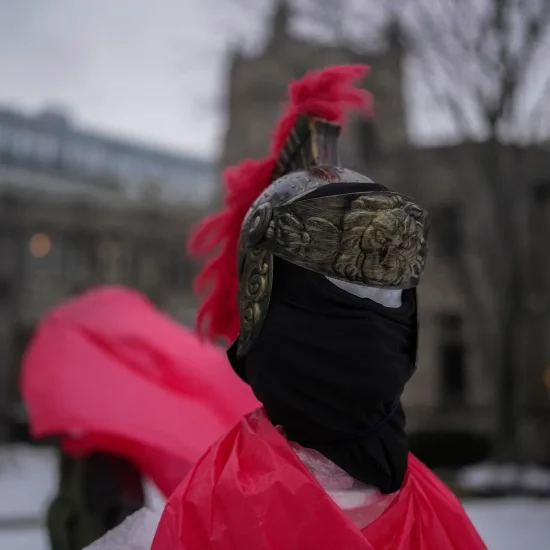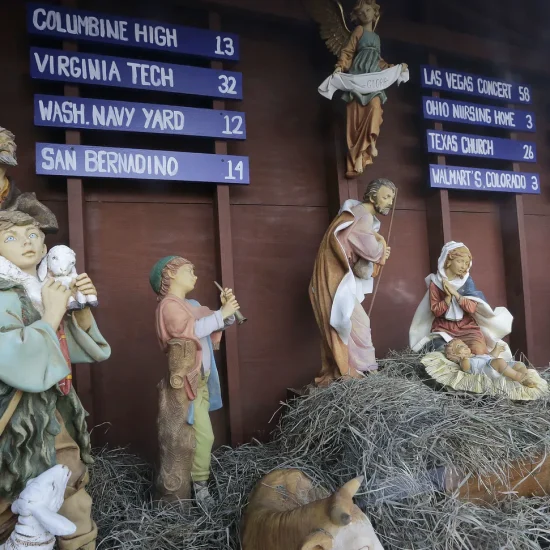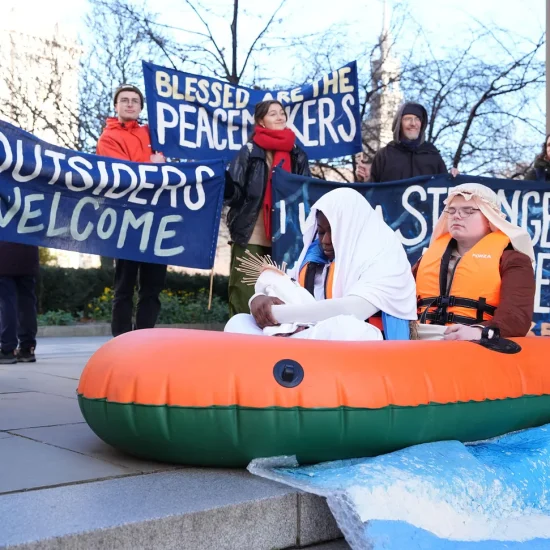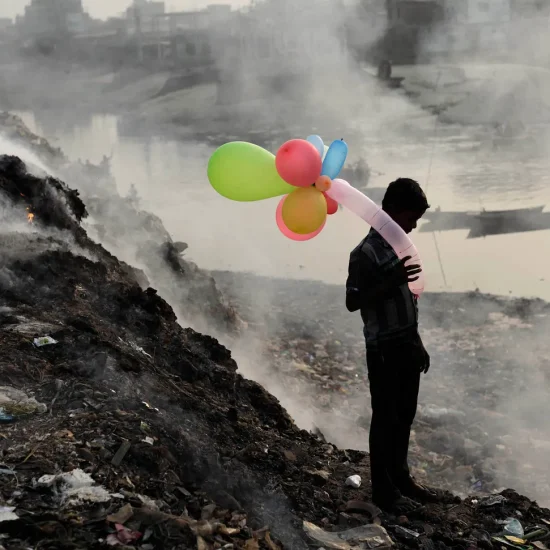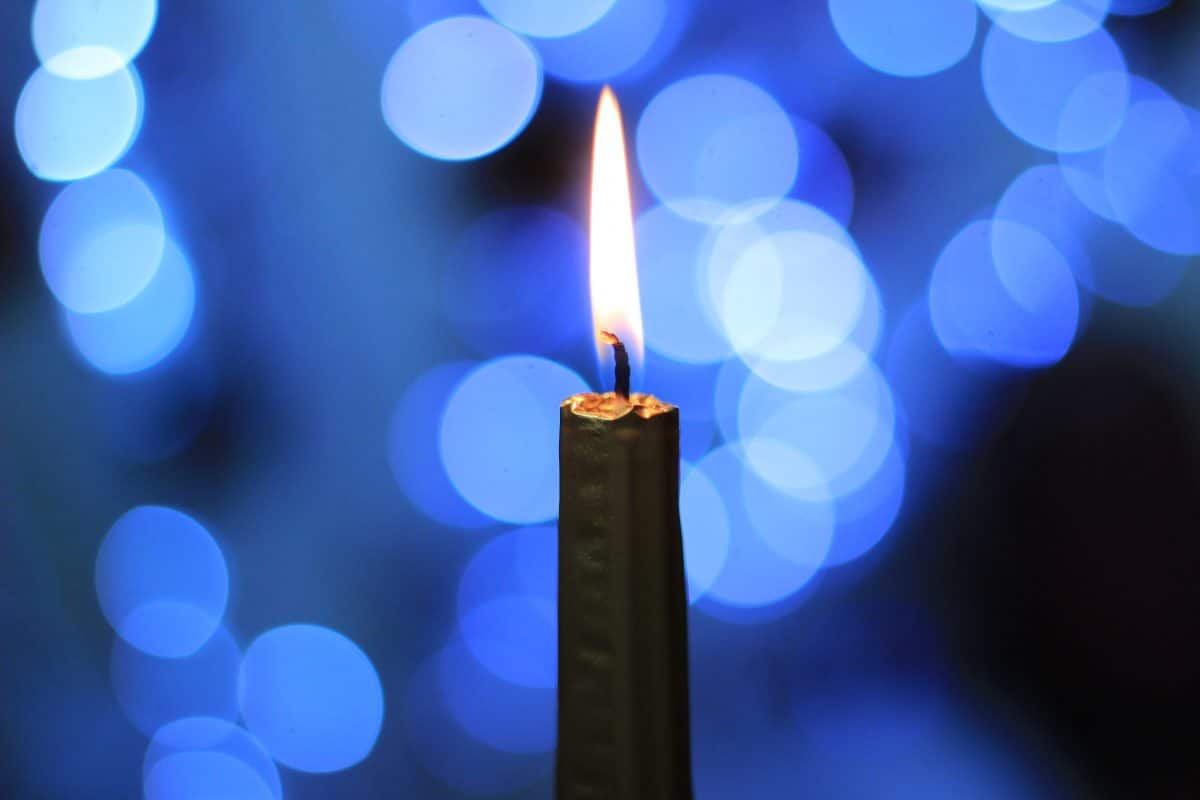
“He has shown strength with his arm; he has scattered the proud in the imagination of their hearts.” (Luke 1:51)
Advent calls us to live in the tension of already and the not yet, a season between. We progressively welcome the light one week, one candle at a time, cutting through the darkness, uncovering the gritty realities of life. This gradual illumination helps us be truthful with God and ourselves. Things are not as they should or could be. Meanwhile, we prepare for when God will do something about it.
Advent is indeed unsettling.
We have spent time in this series audaciously naming realities that burden us: the enduring global pandemic, racism, Christian Nationalism, and too many other tragic truths that require recognizing. Honesty is a huge part of the Advent experience because it makes us mindful of the context where God will establish justice and introduce peace.
The psalmist knows what Advent knows. God must act. “Please listen, O shepherd of Israel. … Show us your mighty power. Come rescue us. Turn us again to yourself, O God. Make your face shine down on us. Only then can we be saved” (Psalm 80:1, 3). The exilic prophet Micah knows what Advent knows. Peace must come from someone in the name of the Lord to rescue us and “be the source of peace” (Micah 5:5). Their hope and relief rest solely in a God who is the active agent of their rescue.
Elizabeth blesses Mary for bearing the Christ child. But Elizabeth’s great wisdom was understanding the reason Mary was chosen over all others. “You are blessed because you believed that the Lord would do what he said.” Mary and Elizabeth know what Advent knows. That believing God is the agent of change is the foundation of hope and the beginning of participating in the kingdom of God. “I am the Lord’s servant. May everything you have said about me come true” (Luke 1:38).

(Laura Hope/Unsplash)
What are the signposts that God is on the move?
Mary offers three signposts of God reversing our attempts at destruction in her Magnificat: God will establish his strength by humbling the proud (Luke 1:51); God will bring down those at the top and elevate those at the bottom (Luke 1:52); God will feed the hungry and send the rich away empty-handed (Luke 1:53).
Therefore, in Advent we join the psalmists, prophets, Elizabeth, and Mary in proclaiming the story of hope in Christ. It helps us to know what Advent knows. That the life of Jesus has brought light to everyone. The light shines in the darkness, and the darkness has not overcome it (John 1:5).
Advent is unsettling because it demands honesty about the world, but it also demands hope-filled expectation in what God is yet to do. However, because we live in the season between, Advent also encourages us to participate in what God is doing here and now. To look for, celebrate, and participate with the light as it overwhelms the darkness.
Rev. Dr. Greg Mamula is the associate executive minister for the American Baptist Churches of Nebraska, and a contributing writer for Word&Way. He is the author of Table Life: An Invitation to Everyday Discipleship, published by Judson Press in print and e-reader versions. To learn more information visit table-life.org.

NOTE: This is part of our Unsettling Advent devotionals running Nov. 28-Dec. 24. You can subscribe for free to receive them each morning in your inbox.

